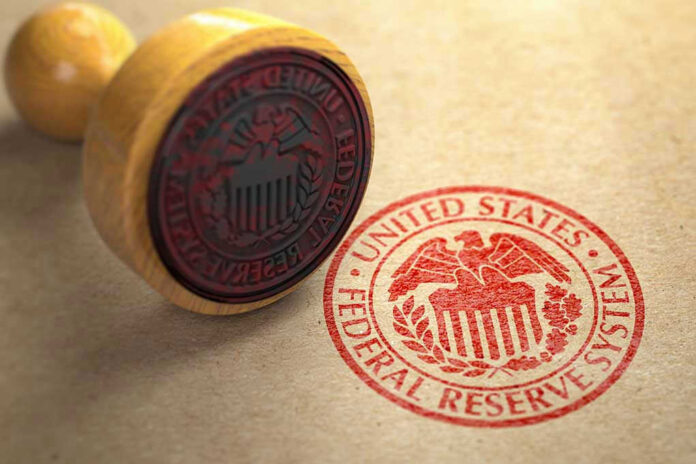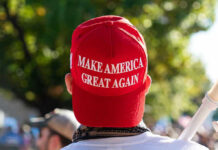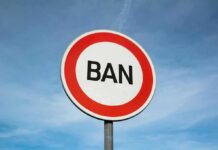
President Trump’s relentless campaign against Federal Reserve Chair Jerome Powell has ignited a constitutional firestorm, with critics warning that politicizing the Fed could undermine America’s financial foundations and conservative principles.
Story Snapshot
- Trump’s public attacks on Fed Chair Powell and demands for rate cuts have reached unprecedented levels.
- The independence of the Federal Reserve, a core pillar of U.S. economic stability, faces significant political pressure.
- Experts warn that politicizing monetary policy could destabilize markets and erode trust in U.S. institutions.
- The White House maintains rate cuts are “objectively necessary,” but most economists disagree.
Trump’s Direct Confrontation with the Federal Reserve
President Donald Trump has dramatically intensified his criticism of Federal Reserve Chair Jerome Powell, repeatedly demanding immediate interest rate cuts and accusing Powell of political bias and incompetence. These attacks have not only been frequent, but also deeply personal, with Trump using social media and official statements to amplify his message. Past presidents have occasionally criticized the Fed, but never with the same public force or persistent rhetoric. This escalation has put the central bank’s independence—an American safeguard since 1913—under the harshest spotlight in decades.
The conflict’s timeline began in February, when Trump tied his trade and tariff agenda to the need for lower interest rates. By spring, as the Fed signaled caution and kept rates steady, Trump’s rhetoric intensified. He labeled Powell a “fool” and even suggested corruption at the Fed, threatening the Chair’s position. Despite these attacks, Powell and the Federal Open Market Committee (FOMC) have maintained their data-driven approach, holding rates in the 4.25%–4.5% range and showing no sign of caving to political pressure. The White House, meanwhile, insists that rate cuts are essential for economic growth, a claim most financial experts dispute.
The Independence of the Federal Reserve and Its Constitutional Role
The Federal Reserve was created to make monetary decisions free from direct political influence, ensuring stability for American families, businesses, and retirees. While presidents appoint Fed Chairs, the law protects the central bank’s independence—a principle threatened when executive branch pressure turns public and personal. Trump’s attacks have raised alarms among economists and constitutional scholars, who argue that undermining the Fed risks eroding a core pillar of American governance. Such politicization jeopardizes not only market stability, but also the trust of investors and the general public in the U.S. economic system.
This politicization carries consequences that extend far beyond Wall Street. When investors perceive that the Fed is swayed by political demands, it can trigger market volatility, increase borrowing costs, and ultimately hurt everyday Americans who rely on stable interest rates for mortgages, loans, and retirement savings. The risk is not just economic; it is also constitutional, as the Founders intended certain institutions to act as checks on fleeting political pressures. The president’s campaign, critics argue, could set a dangerous precedent for future administrations, making it harder for the Fed to resist partisan demands in turbulent times.
Expert Warnings and Conservative Concerns
Industry experts and economists overwhelmingly caution against allowing any president—regardless of party—to dictate monetary policy by force of will. Harvard Kennedy School analysts warn that Trump’s actions may mark the “beginning of the end” for Fed independence, with potentially lasting damage to America’s financial credibility. TIME magazine highlights the risk that persistent attacks could impair the Fed’s ability to make sound, data-based decisions. While the White House frames its push as essential for growth, most experts believe that data, not politics, should determine interest rates. Conservative voices worry that if the Fed bows to political pressure now, future presidents could use the central bank as a tool for reckless spending or ideological experiments, threatening the long-term health of the U.S. economy and the Constitution itself.
Billionaire GOP megadonor Ken Griffin warns Trump's Federal Reserve strategy 'carries steep costs' https://t.co/UWSyu4t4SC
— FOMC Alerts (@FOMCAlerts) September 9, 2025
The broad consensus among financial professionals is that protecting the Fed’s independence aligns with core American values: limited government, checks and balances, and prudent stewardship of national resources. Allowing any administration to undermine this principle, even for short-term political gain, could erode the very foundations of U.S. prosperity and liberty. As the debate rages, the stakes for conservative values—individual liberty, stable markets, and constitutional governance—have rarely been higher.
Sources:
Look at the unfolding battle between Trump, Powell over Fed policy
Trump lashes out after Fed keeps rates steady
The Danger of Trump’s Attacks on the Federal Reserve
The End of the Federal Reserve As We Know It?
































